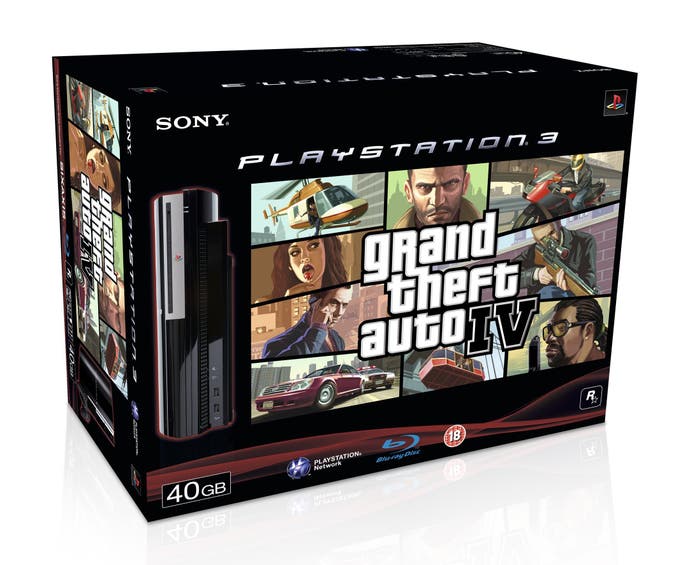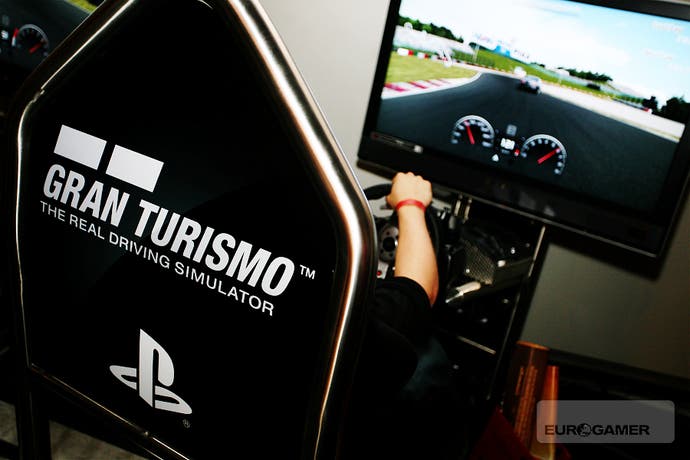Sony's David Reeves
On PS3, PSP and what the future holds.
Yesterday Sony published figures for the last three months of 2008. They revealed sales of all three consoles were down year-on-year, with only PS3 software showing an increase. Bad news for Sony, you might think - but David Reeves would disagree.
We sat down with the Sony Computer Entertainment Europe boss to ask why he's happy with the figures, and who he believes is winning the console battle. Plus, when we can expect a price cut, what's next for PSP and whether Sony has started work on PlayStation 4.
On PS3, the target is still 10 million sell-in. PS3 was the number one priority, and the Corporation is going to meet that target. We're very happy about it overall.
PSP was not hit so much by demand, but by economic factors. I can only talk specifically about Europe, but we've lost volume in Russia. A lot of retailers there have been sucked up by oligarchs, and they didn't have the financial support. They were not able to buy in the product, even though the demand was there.
Also unemployment has rocketed in Spain, and to some extent in Italy. The demand was not there. Not just for us - for Nintendo or Microsoft, it's exactly the same.
We've said it would be 10 million, and it is 10 million. We had a price decrease in the previous year, and we didn't have a price decrease this year. Xbox 360 did, and Nintendo was already quite low.
The plan wasn't necessarily to hit sales, it was to hit a profit target - to do better than break even in Q3. The financial results show a break even in Q3 for Sony Computer Entertainment worldwide. So rather than then going for market share and sales, we went for profit, at least to break even.

Absolutely not. We're two-and-a-half years into a ten-year cycle. For October, November and December we were in a holding pattern, especially with the pricing. We had to demonstrate we could make a profit with the business model, and that's what we've done.
In March 2008, we were a long way ahead of Microsoft. We launched PS3 six months later [in Europe] than the US, we launched 18 months later than Xbox 360 and we were beating Microsoft in terms of installed base - so that came true.
I don't want to talk about the competition too much, but Xbox 360 is not ahead by a million units. We sold through 500,000 PS3s in November. We sold through 1.1 million units in December. Our installed base now is very close to 8.5 million units in PAL territories. Our numbers show we are absolutely neck-and-neck.
What happened was, we overtook them, and they dropped the price. It's almost as if we've gone ten rounds as Mohammed Ali and we're still standing, because we didn't drop the price. We held firm.
Now, going into the remaining rounds and the next seven years, we are going to be very strong. The last few weeks have shown we are clearly number two in the market. I'm as confident as I was before.
I'm not going to comment on that. I simply don't know what their plans are. I'm not going to be as arrogant as to comment on either Nintendo or Xbox 360.

I don't think so. He was probably misquoted, because I don't think Kaz would say that.
I look at it differently. In the videogames industry, we've all been winners for the last two years. We've had more people coming in who have never played games before. The industry is not recession-proof, but it has done extremely well.
It's a function of the economic situation that you are going to find people who are resilient, who do not play with their pricing, who are very efficient. Those people in that particular studio, they don't have a job, but I think in a few weeks you'll find them housed in other studios.
Of course there are going to be some people who fold. But the videogames industry is inherently very healthy. It's not a question of survival of the fittest, it's the survival of people who are professional, and don't just go around cutting their prices and destroying the market.

